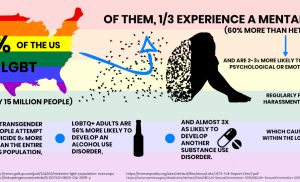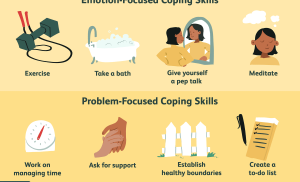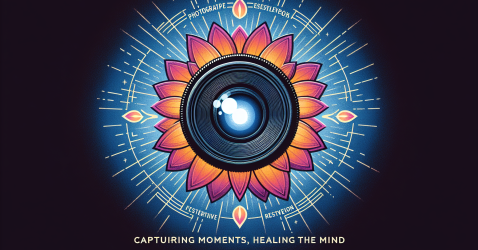Bibliotherapy: Using Literature As A Self-Care Strategy
Are you feeling stressed, overwhelmed, or in need of a little self-care? Look no further than bibliotherapy – the practice of using literature as a tool for personal growth and healing. Bibliotherapy has been gaining popularity as a strategy for self-care, allowing individuals to find solace, inspiration, and understanding within the pages of a book. Whether you’re seeking solace in a novel, guidance in a self-help book, or comfort in a memoir, bibliotherapy offers a unique and personalized approach to self-care. So grab a book, settle into a cozy chair, and let the power of literature help you on your journey of self-care and self-discovery.
What is bibliotherapy
Definition
Bibliotherapy is a therapeutic approach that utilizes literature, specifically books, to improve emotional well-being, reduce stress, enhance self-awareness, and promote empathy. It involves the use of carefully selected texts that resonate with an individual’s personal struggles, allowing them to gain new perspectives, process emotions, and find solace or inspiration within the pages of a book.
History
Although the term “bibliotherapy” was coined in the early 20th century by Samuel McChord Crothers, the concept of using literature for healing dates back centuries. The ancient Greeks recognized the potential of literature to alleviate emotional distress, with ancient texts often containing philosophical insights and narratives that offered comfort and guidance. Throughout history, libraries and books have been seen as symbols of healing and enlightenment, as places where individuals could escape their troubles and find solace within the written word. Over time, bibliotherapy has evolved into a formal therapeutic practice, supported by research and utilized by mental health professionals worldwide.
Benefits of bibliotherapy
Emotional well-being
One of the key benefits of bibliotherapy is its ability to enhance emotional well-being. Reading books that explore various emotions, experiences, and challenges can provide individuals with a sense of validation and understanding. Through the characters and their journeys, readers can relate to the struggles depicted in the books, making them feel less alone in their own difficulties. This validation can contribute to a greater sense of self-acceptance, improved mood, and overall emotional resilience.
Stress reduction
Reading has long been recognized as a form of relaxation and escapism. Engaging with a well-written and captivating book can transport you to a different world, providing temporary respite from stressors and worries. Bibliotherapy harnesses this inherent stress-reducing quality of reading by encouraging individuals to immerse themselves in books that offer a mental escape. By focusing on the narrative, readers can temporarily suspend their own worries, leading to a reduction in stress levels and a rejuvenated mind.
Improved self-awareness
Bibliotherapy can be a powerful tool in fostering self-awareness. By engaging with books that explore themes of personal growth, identity, and introspection, individuals can gain valuable insights into their own lives and experiences. Through the struggles and triumphs of literary characters, readers may gain a deeper understanding of their own emotions, motivations, and desires. This enhanced self-awareness can serve as a catalyst for personal growth and transformation.
Enhanced empathy
Empathy is the ability to understand and share the feelings of others. Through reading, individuals can develop and strengthen their empathy skills. When engrossed in a well-crafted story, readers are exposed to different perspectives, cultures, and life experiences. This exposure can broaden their understanding of the human condition, fostering empathy for others who may have different backgrounds or struggles. As individuals become more empathetic, they can navigate relationships, conflicts, and interactions with a greater sense of compassion and understanding.
Different forms of bibliotherapy
Fiction
Fictional literature is a widely used form of bibliotherapy. Novels, short stories, and plays can transport readers into fictional worlds, where they can explore a variety of emotions, experiences, and dilemmas. Fictional narratives often depict relatable characters and relatable challenges, allowing readers to connect with and learn from these literary personas. Through fiction, individuals can explore themes of love, loss, friendship, and personal growth, finding solace, inspiration, and guidance within the pages of a book.
Non-fiction
Non-fiction books, including memoirs, self-help books, and scientific literature, can also serve as powerful tools in bibliotherapy. These books provide readers with real-life experiences, knowledge, and guidance. Memoirs, in particular, offer a glimpse into the lives of individuals who have overcome adversity, sharing their journeys of resilience and personal growth. Self-help books provide strategies, techniques, and advice for navigating various life challenges, empowering readers to make positive changes in their own lives. Scientific literature can offer insights into the workings of the human mind, providing readers with a deeper understanding of themselves and others.
Poetry
Poetry has a unique ability to evoke emotions and express complex thoughts and feelings in a condensed and impactful way. The use of metaphors, imagery, and rhythmic language in poetry can resonate deeply with readers, allowing them to reflect on their own thoughts and emotions. Poetry can provide a space for self-expression and introspection, as well as offer solace and beauty in times of distress. Whether reading published poetry or attempting to write their own, individuals can find catharsis and healing through the art of poetic expression.
Selecting the right books
Identifying personal needs
When engaging in bibliotherapy, it is important to identify your personal needs and goals. Take some time to reflect on the challenges you are facing, the emotions you are experiencing, and the areas of your life that could benefit from growth and introspection. Are you seeking comfort in times of grief or loss? Do you want to explore strategies for managing anxiety or stress? Are you looking for inspiration and guidance in your relationships? By understanding your needs, you can select books that resonate with your personal journey and offer the insights, support, or guidance you seek.
Matching genres and themes
Once you have identified your personal needs, you can begin to explore books that address the relevant themes and genres. Consider the genres of literature that interest you, such as fiction, non-fiction, or poetry. Then, explore books within those genres that align with the themes or challenges you wish to explore. For example, if you are seeking personal growth and self-acceptance, you may want to explore self-help books or memoirs that offer insights into overcoming adversity and finding resilience. By selecting books that align with your needs and preferences, you can enhance your engagement and connection with the material.
Considering writing style
When selecting books for bibliotherapy, it is important to consider the writing style and how it resonates with you personally. Some individuals may find comfort and solace in poetic and metaphorical language, while others may prefer more straightforward and practical advice. Consider the tone, language, and writing style of the books you are considering, and choose those that align with your personal preferences and resonate with you on an emotional level. The more you connect with the writing style, the more impactful and meaningful the reading experience will be.
Creating a bibliotherapy plan
Setting goals
To make the most of bibliotherapy, it can be helpful to set specific goals for your reading journey. These goals can be related to the areas of your life you wish to explore or the emotions you want to process. For example, you may set a goal to read one book per month that addresses a specific challenge you are facing, or you may set a goal to read a certain number of books that promote personal growth and well-being. By setting goals, you give yourself a clear direction and purpose, and you can track your progress and growth throughout your bibliotherapy journey.
Scheduling reading time
Incorporating reading time into your routine is essential to ensure you consistently engage in bibliotherapy. Schedule dedicated reading time that works best for your schedule and lifestyle. Whether it is a few minutes in the morning, during lunch breaks, or before bed, find a time when you can relax and immerse yourself in your selected book. Treat this time as self-care and make it a priority in your daily or weekly routine.
Keeping a reading journal
A reading journal can be a valuable tool in your bibliotherapy journey. Use it to reflect on your thoughts, emotions, and insights as you read different books. Take note of passages that resonated with you, quotes that inspired you, or ideas that challenged your perspective. Use the journal as a space for self-reflection, capturing your growth, and documenting your journey through literature. The act of journaling can enhance your engagement with the books and provide a record of your progress and personal revelations.
Specific areas bibliotherapy can help
Anxiety and stress
Bibliotherapy can be an effective approach for managing anxiety and stress. By engaging with books that explore strategies for stress reduction, mindfulness, and emotional well-being, individuals can gain insights and techniques for coping with anxious thoughts and challenging situations. Reading about characters who face similar struggles can provide a sense of validation and inspire readers to adopt healthier coping mechanisms.
Depression and loneliness
Depression and loneliness can be challenging emotions to navigate, but bibliotherapy can offer solace and support. Books that explore themes of resilience, hope, and finding joy in small moments can provide comfort and inspire individuals to seek connection and happiness. Through reading about characters who have overcome depression and loneliness, readers can gain insights and strategies for finding purpose, building relationships, and developing a positive mindset.
Grief and loss
The grieving process can be complex and overwhelming, but reading about characters who have experienced grief and loss can offer solace and understanding. Books that explore themes of mourning, acceptance, and healing can provide comfort and companionship during difficult times. By witnessing the journeys of fictional or real individuals who have navigated grief, readers can find inspiration, validation, and strategies for finding peace and meaning after a loss.
Relationship issues
Bibliotherapy can also be valuable for individuals experiencing challenges in their relationships. Books that explore themes of communication, empathy, and healthy boundaries can provide insights and guidance for navigating relationship dynamics. By reading about characters who have grappled with similar issues, individuals can gain new perspectives, learn effective problem-solving strategies, and ultimately improve their relationships.
Implementing bibliotherapy techniques
Active reading
Active reading involves actively engaging with the material as you read. Rather than passively consuming the words on the page, active reading requires reflection, questioning, and critical thinking. Take the time to pause, reflect on the emotions and insights the book evokes, and ask yourself how these relate to your own life. Consider the motivation and actions of the characters, and how they align with or challenge your own beliefs. By actively engaging with the material, you can deepen your understanding and connection to the book and maximize the therapeutic benefits of bibliotherapy.
Discussing books in therapy
A powerful way to enhance the benefits of bibliotherapy is to discuss the books you are reading in therapy sessions. Share your thoughts, emotions, and insights with your therapist, and discuss how the books relate to your personal experiences. Your therapist can provide guidance, support, and additional perspectives, helping you further process and integrate the insights gained from the books. By combining the power of bibliotherapy with professional therapy, you can create a comprehensive and holistic approach to your emotional well-being.
Creating book-inspired art
For individuals who enjoy creative expression, creating book-inspired art can be an effective way to deepen the impact of bibliotherapy. This can take the form of paintings, drawings, collages, or even poetry inspired by the books you are reading. Artistic expression can provide an additional outlet for processing emotions, exploring themes, and capturing the essence of the books. Whether creating art as a personal reflection or sharing it with others, this creative process can enhance the therapeutic benefits of reading and contribute to your overall well-being.
Bibliotherapy for specific populations
Children and teenagers
Bibliotherapy holds immense value for children and teenagers, offering a safe and engaging way to explore emotions, cope with challenges, and develop resilience. Picture books, novels, and young adult literature can address a range of topics, from loneliness and bullying to self-identity and body image. By reading books that resonate with their experiences, young individuals can feel supported, understood, and inspired to navigate the complexities of growing up.
Elderly
Bibliotherapy can also be particularly beneficial for the elderly population, who may face challenges such as loneliness, loss, and declining health. Books that discuss aging, finding purpose in later life, or offering nostalgic reflections can provide comfort and connection. Reading can also engage cognitive functioning and memory, fostering mental stimulation and supporting overall well-being in the elderly population.
Veterans
For veterans who have experienced trauma or struggle with the transition from military to civilian life, bibliotherapy can offer a valuable support system. Books that address themes of resilience, trauma recovery, and identity exploration can provide veterans with a sense of validation and camaraderie. By reading about characters who have faced similar challenges, veterans can find solace, hope, and strategies for healing.
People with mental health disorders
Bibliotherapy can be particularly beneficial for individuals living with mental health disorders, such as anxiety, depression, or post-traumatic stress disorder (PTSD). Books that explore mental health, recovery, and strategies for self-care can provide individuals with insights, coping mechanisms, and a sense of validation. Reading about characters who have experienced similar challenges can alleviate feelings of isolation and encourage individuals to seek professional help when needed.
Challenges and limitations of bibliotherapy
Book availability
Although bibliotherapy offers many benefits, one of its challenges is the availability of suitable books. Not all books are created equally in terms of their therapeutic potential, and finding the right books for specific needs can be time-consuming and sometimes frustrating. Additionally, access to books may pose a challenge for individuals with limited resources or living in remote areas. However, with the help of libraries, online resources, and recommendations from mental health professionals, suitable books can be found to support the bibliotherapy process.
Lack of professional guidance
While bibliotherapy can be a self-directed practice, it is important to note that seeking guidance from mental health professionals can greatly enhance its effectiveness. Without professional guidance, individuals may struggle to identify suitable books, navigate emotional responses, or correctly interpret the messages within the texts. Mental health professionals can provide valuable insights, facilitate discussion, and offer personalized recommendations, ensuring that the bibliotherapy process is safe, effective, and tailored to individual needs.
Resistance to reading
Not everyone has a natural inclination towards reading or finds it an enjoyable activity. For individuals who do not have a positive relationship with books, the therapeutic benefits of bibliotherapy may be less accessible. Resistance to reading may stem from various factors, such as difficulty concentrating, learning disabilities, or negative past experiences related to reading. In such cases, alternative forms of therapeutic engagement, such as audiobooks or interactive storytelling, may be explored to overcome this challenge and still benefit from the healing power of literature.
Research and evidence supporting bibliotherapy
Psychological studies
Numerous psychological studies have explored the efficacy of bibliotherapy as a therapeutic tool. Research has shown that bibliotherapy can lead to improvements in mental health outcomes, including reductions in symptoms of depression, anxiety, and stress. Additionally, studies have demonstrated that individuals who engage in bibliotherapy experience increased self-awareness, empathy, and overall well-being. The positive outcomes reported in these studies emphasize the value and effectiveness of bibliotherapy as a therapeutic practice.
Therapeutic outcomes
The therapeutic outcomes of bibliotherapy have been observed in various populations and contexts. From children to the elderly, individuals with mental health disorders to those experiencing grief or relationship challenges, bibliotherapy has consistently shown positive effects. Not only does bibliotherapy support emotional well-being and the development of coping skills, but it also empowers individuals to take an active role in their own healing and personal growth.
Case studies
In addition to broader psychological studies, case studies have also demonstrated the effectiveness of bibliotherapy in addressing specific challenges or populations. Case studies often provide in-depth analysis of the therapeutic process, showing how bibliotherapy can lead to profound personal insights, emotional growth, and positive changes in individuals’ lives. These individual accounts highlight the nuanced and deeply transformative nature of bibliotherapy, supporting its value as a therapeutic approach.
In conclusion, bibliotherapy is a valuable and accessible self-care strategy that utilizes literature to promote emotional well-being, reduce stress, enhance self-awareness, and foster empathy. Through carefully selected books, individuals can explore various themes and genres, finding solace, inspiration, and guidance within the pages. By incorporating bibliotherapy techniques into their lives, setting goals, scheduling reading time, and keeping a reading journal, individuals can maximize the therapeutic benefits of reading. Whether facing anxiety, depression, grief, or relationship challenges, bibliotherapy can provide support and facilitate personal growth. While challenges and limitations exist, research and evidence support the positive outcomes of bibliotherapy, affirming its role as a powerful tool for improving mental health and well-being.

















